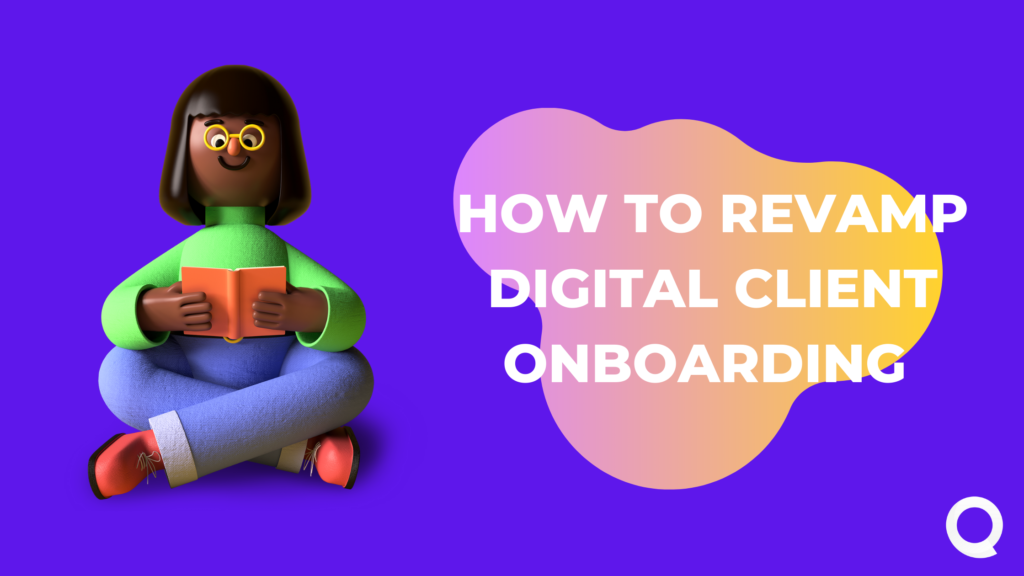Onboarding Integrations: An Overview
In the digital business landscape, third-party integrations such as electronic Know Your Customer (eKYC), verification tools, and fraud detection mechanisms are transforming client onboarding. These integrations play a crucial role in ensuring security and efficiency in the onboarding process. They seamlessly blend with client onboarding workflows, creating a streamlined and secure environment for businesses and their customers.
Table of Contents
- Onboarding Integrations: An Overview
- The Role of eKYC in Modern Onboarding
- Fraud Detection: A Crucial Integration
- Enhancing Customer Experience through Integrations
- Trends in Onboarding
- Quickboarding: Seamless Integration for Easy Onboarding
- Conclusion

The Role of eKYC in Modern Onboarding
eKYC is revolutionizing the traditional KYC process by transforming it into an efficient digital identity verification system. This advancement goes beyond replacing paper-based checks with digital solutions; it also aids in Anti-Money Laundering (AML) regulation compliance. eKYC allows businesses to authenticate client identities quickly and accurately, accelerating the onboarding process while ensuring regulatory adherence.
Fraud Detection: A Crucial Integration
The integration of fraud detection systems is vital in today’s digital landscape, where online fraud threats are constantly evolving. These systems strike a balance between protecting customers and providing a seamless experience. By identifying potential fraud risks early in the onboarding process, businesses can take proactive measures to protect both their operations and their customers.
Enhancing Customer Experience through Integrations
The integration of various tools and services into the onboarding process significantly improves customer satisfaction and trust. Streamlined processes, enhanced security measures, and reduced onboarding time all contribute to a positive customer experience. These integrations ensure that clients feel secure and valued from their very first interaction.
Trends in Onboarding
The continuous evolution of technology greatly influences the future of client onboarding. There is an increasing focus on improving security, efficiency, and compliance through technology. Trends such as the use of artificial intelligence for enhanced data analysis, mobile-first strategies, and the implementation of blockchain for secure record-keeping are shaping the future of digital onboarding.
Quickboarding: Seamless Integration for Easy Onboarding
Quickboarding leverages its no-code platform to effortlessly integrate essential services like eKYC and fraud detection, ensuring a smooth customer journey. This approach allows for quick adaptation to changing market demands and regulatory requirements.
With the ability to integrate over 60 different services, Quickboarding exemplifies versatility and efficiency in customizing the onboarding experience. This flexibility caters to specific business needs, making Quickboarding an ideal platform for businesses seeking a tailored onboarding solution.
Conclusion
Third-party integrations are indispensable in modernizing the onboarding experience. Quickboarding stands out in this arena, offering the flexibility and tools needed for the seamless integration of various third-party services. This capability enhances the overall efficiency, security, and compliance of the onboarding process, making Quickboarding a superior solution in the market.
By focusing on these aspects, Quickboarding not only simplifies onboarding but also enriches the overall experience, fostering trust and efficiency in business operations.
Frequently Asked Questions (FAQs)
- What is eKYC and How Does it Enhance Onboarding?
eKYC, or electronic Know Your Customer, is a digital process for verifying the identities of clients. It typically involves collecting and verifying personal information electronically, often using biometric data, government-issued IDs, or other secure methods. In the context of onboarding, eKYC streamlines the identity verification process, making it faster and more efficient, thereby enhancing the overall onboarding experience. - Why is Fraud Detection a Crucial Aspect of Digital Onboarding?
Fraud detection is crucial in digital onboarding to protect both the business and its customers from fraudulent activities. By integrating advanced fraud detection tools into the onboarding process, companies can identify and mitigate potential risks early on, ensuring a secure environment for conducting business. - How do 3rd Party Integrations Enhance the Onboarding Experience?
3rd party integrations enhance the onboarding experience by streamlining the process, reducing the time and effort required from customers. These integrations allow for a more personalized and secure interaction, which builds trust and satisfaction among clients. - What are Some Emerging Trends in Client Onboarding?
Emerging trends in client onboarding include the use of AI for predictive analysis and personalized experiences, mobile-first strategies for greater accessibility, blockchain technology for secure and transparent transactions, and increasing emphasis on user experience design. - Can Quickboarding Integrate with Any 3rd Party Service?
Quickboarding is designed to integrate with a wide range of 3rd party services, particularly those essential for onboarding processes such as eKYC, fraud detection, and CRM systems. It supports over 60 different integrations, providing businesses with a flexible and versatile platform for enhancing their onboarding process. - Is No-Code Integration Difficult to Implement in Onboarding?
No-code integration, as offered by Quickboarding, is user-friendly and designed for ease of use. It allows users without technical expertise to integrate various services into their onboarding processes, simplifying and speeding up implementation. - How Secure are 3rd Party Integrations in Quickboarding?
Quickboarding places a high priority on security and ensures that all 3rd party integrations meet stringent security standards. The platform employs robust data protection measures to safeguard sensitive information during the onboarding process. - Can Quickboarding be Customized for Specific Industry Needs in Onboarding?
Yes, Quickboarding offers customization options to cater to specific industry needs. Its flexible platform and diverse range of integrations make it suitable for industries like finance, insurance, human resources, and more. - How Does Quickboarding Aid in Regulatory Compliance during Onboarding?
Quickboarding aids in regulatory compliance during onboarding by incorporating tools and features that adhere to industry standards and regulations. This includes compliance with AML laws, data protection regulations, and other relevant legal requirements. - What Impact Does Quickboarding Have on Onboarding Time?
Quickboarding significantly reduces onboarding time by automating and streamlining various processes. Its efficient workflow and integration capabilities enable quicker client and employee onboarding, enhancing overall operational efficiency.

